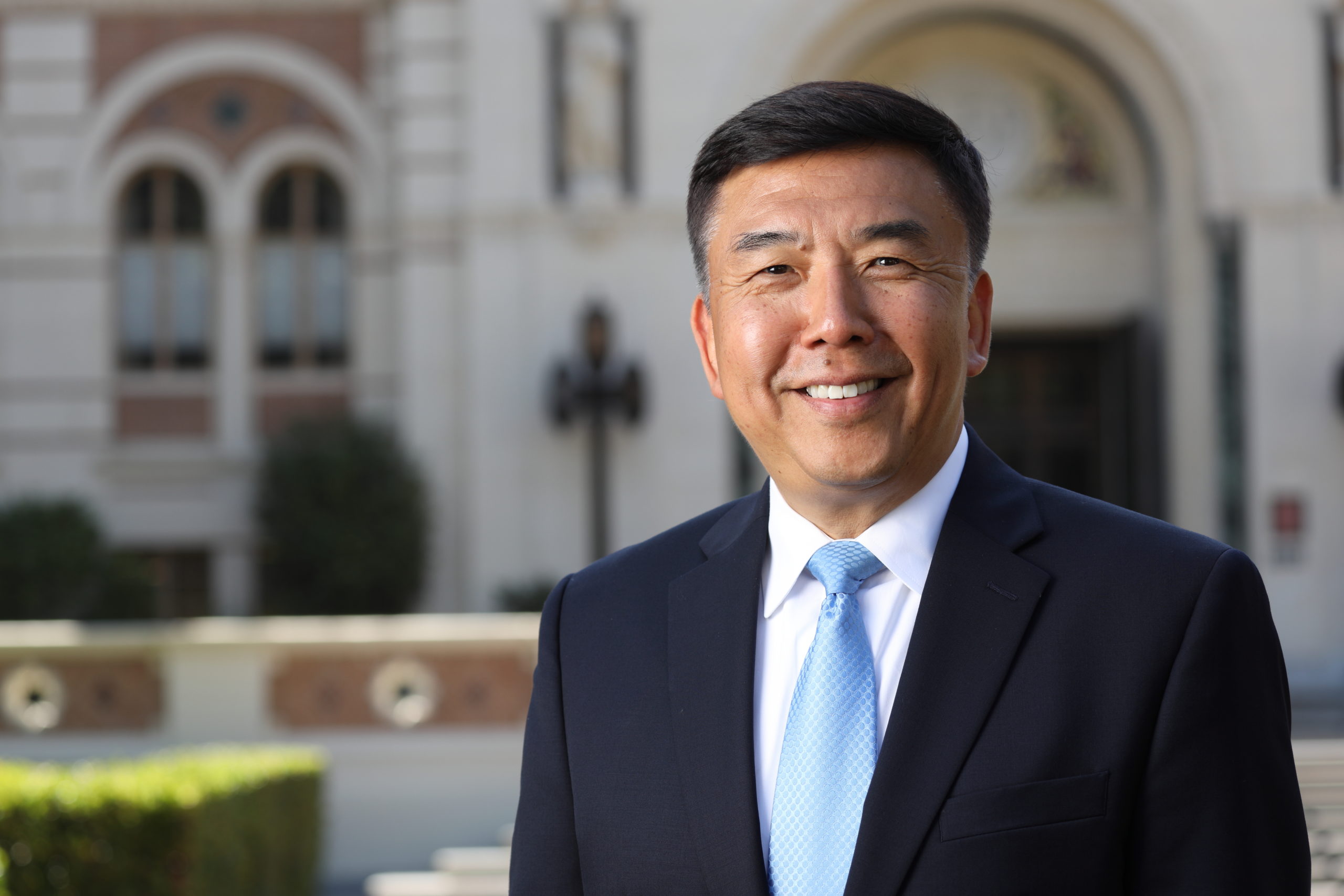Yang Chai appointed University Professor

Posted
09 Jun 20
The prestigious designation puts him in the company of fewer than 20 faculty members across USC.
ASSOCIATE DEAN OF RESEARCH Yang Chai PhD ’91, DDS ’96 has been appointed a University Professor, making history as Ostrow’s first faculty member to achieve such distinction.
The designation, held by fewer than 20 other faculty members across the university, is awarded very selectively to those whose accomplishments have brought special renown to USC.
“There is no one more deserving than Yang to be the very first Ostrow faculty member to receive this recognition,” said Dean Avishai Sadan in an announcement sent to the community on June 9.
Working his way through the ranks
Chai earned his doctor of dental medicine degree from Peking University, before joining USC as an instructor in 1987. During his time at USC, he furthered his studies, earning both doctor of philosophy and doctor of dental surgery degrees.
In 2006, he was promoted to professor after working his way through the ranks. He was also named the George and MaryLou Boone Chair in Craniofacial Biology that same year.
Chai has been the director of the Center for Craniofacial Molecular Biology since 2007 and Ostrow’s Associate Dean of Research since 2009.
Chai’s research is largely focused on better understanding craniofacial birth defects, such as cleft palate and craniosynostosis, to find innovative ways to prevent and treat them.
Some of his discoveries include:
—Identifying the molecular signaling systems that cause cleft palate development and preventing it altogether with animal models.
—Discovering that craniosynostosis, the premature fusing of skull bones in infants, is caused by an early loss of stem cells, giving surgeons less invasive and risky options to restore normal skull growth.
—Identifying the stem cell population that causes rodent incisors to grow continuously, which could one day allow scientists to regenerate teeth in a lab.
—Advancing knowledge 0f the development of cranial neural crest cells, which are responsible for how the entire craniofacial area is formed, which could one day serve to prevent craniofacial deformities altogether.
An impact felt far beyond Troy
Chai’s impact can be felt beyond the two Trojan campuses, too.
He has brought together eight universities across California to create the Center for Dental, Oral and Craniofacial Tissue and Organ Regeneration (C-DOCTOR), a group of clinicians, research scientists, biostatisticians, regulatory scientists and pre-clinical/clinical trial experts to enable the development and clinical implementation of innovative approaches for dental, oral and craniofacial tissue regeneration. C-DOCTOR was recently awarded a $30 million, five-year grant to continue its mission into Stage 3.
He also serves as a principal investigator for FaceBase, a central repository for craniofacial datasets and tools meant to advance craniofacial science by fostering cooperation and collaboration around the globe.
Both endeavors have helped establish USC as a premier center for craniofacial research and tissue regeneration.
Lucky to have Chai
Chai is a prolific author, having published more than 140 journal articles. He also holds more than $30 million in external funding from both the National Institutes of Health and its subsidiary, the National Institute of Dental and Craniofacial Research.
He holds joint appointments in the Keck School of Medicine, in the Department of Otolaryngology and the Department of Stem Cell Biology and Regeneration Medicine.
“We are lucky to count Dr. Chai as a member of the Trojan Family,” Sadan said in his nomination letter. “His efforts in tissue regeneration will revolutionize the way clinicians treat patients with disfiguring birth defects, trauma and diseases. His academic and research leadership have already brought great national and international renown to the University and will continue for years to come.”